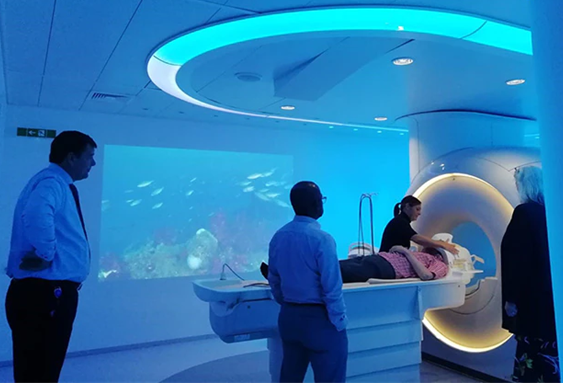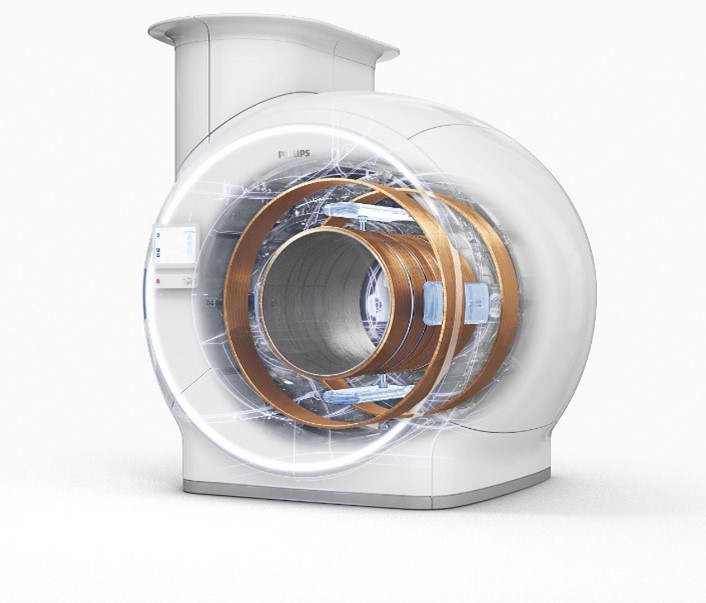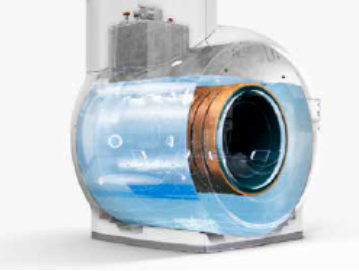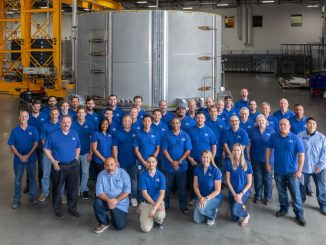
Maximizing image quality is a given in any new magnetic resonance imaging scanner. Delivering that capability to the maximum number of patients and doing it cost effectively, however, depends on optimizing workflows and maximizing scanner up-time. Many radiology departments are currently under extreme pressure to perform more MRI scans on more patients, not only due to the aging population but also to deal with the backlog of cases resulting from the Covid-19 pandemic.
Enter the latest generation scanners from medical equipment maker Philips, a global leader in health technology, with magnets requiring drastically reduced volumes of liquid helium for cooling. Introduced in 2018 and now operating in healthcare facilities worldwide, the equipment is proving to be a game-changer, much of it due to the company’s BlueSeal magnet technology.
Helium is needed to cool the scanner’s magnet to a low enough temperature, typically around 4-degrees Kelvin which equals a frosty -269 degrees CC or -452.47 degrees F, to achieve superconductivity – the only way of getting enough electrical current to flow in the magnet’s coil to generate the high-strength magnetic field needed. Under abnormal operating conditions, for example, when the coil momentarily loses superconductivity, known as a magnet quench, significant volumes of helium typically vent from a conventional scanner, not only posing a risk to patients and staff but also incurring the down-time costs associated with helium replacement and interrupted workflows.
Helium is also a finite and increasingly expensive resource, which once released into the atmosphere boils off into outer space never to be seen again. A conventional MRI scanner typically consumes around 1,500 liters of liquid helium a year, and there are around 40,000 of them worldwide. No wonder that MR imaging professionals welcome a future that is much less helium intensive.

BlueSeal uses a highly efficient micro-cooling technology which requires just 7 liters of liquid helium for cooling, instead of the 1,500 liters that conventional magnets use. This relatively tiny amount of liquid helium is placed in the magnet and fully sealed during manufacturing, enclosing the precious gas for the rest of its life. Containment of the helium reduces potential long interruptions to MR services issues and eliminates helium refill cryogenic costs during the magnet’s lifetime, plus the scanner installation is greatly simplified without traditional venting infrastructure and greatly reduced weight.
The magnet coils sit in the vacuum instead of in the helium vessel and are cooled by cooling tubes
that are thermally connected to the magnet coils. The helium circulates through gravity and is cooled
by the cold head. Cold helium gas is denser and is heavier than warm helium gas. As such, the cold
gas sinks downward and moves through the cooling tubes along the superconducting coil section.
While taking up heat from this coil, the helium gas warms up slightly, expands and gets lighter. As a
consequence, the helium gas goes up and comes in contact with the cold head, where it is cooled.
The process then repeats itself.

“MRI provides exceptional diagnostic and therapy guidance capabilities, but it also places substantial operational demands on the hospital or imaging center due to requirements for installation, footprint and service,” said Arjen Radder, global business leader for MR at Philips, when BlueSeal was introduced in the company’s Ingenia scanners in 2018. “BlueSeal is breakthrough MRI technology and we’re proud to be first to market.” The development impacted the market and other equipment makers have since designed reduced-helium systems.
At Poole Hospital in the UK where Philips’ 1.5-Tesla Ingenia Ambition scanner has been operating, a recent case study demonstrates its acceptance. Ingenia combines the BlueSeal technology along with other improvements for patient comfort, imaging quality and workflow. Despite the postponement of MRI scans during the COVID-19 pandemic, the hospital has reduced its backlogs and waiting times in 2021, averaging an extra 30 patients per month this year compared to 2020 while also receiving good reviews from patients and staff. For more info, see www.philips.com.



